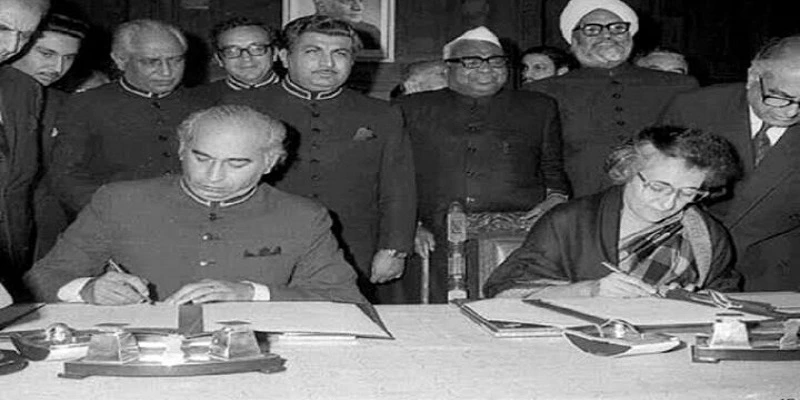Simla Agreement 1972 Bhutto-Gandhi Summit Reshapes Indo-Pak Relations
The Bhutto and Indra Gandhi summit conference was held in Simla at the time they had agreed to. The Simla Agreement conference was held from June 28, June 28, until July 2, July 2, 1972.
The first result of the War of 1971 between India and Pakistan was the change in the government in Pakistan, and Zulfiqar Ali Bhutto, the prominent party leader from West Pakistan, assumed power on December 20 1971. This War of 1971 resulted in the demise of East Pakistan. Pakistan lost nearly 54 per cent of its population. Ninety-three thousand of its soldiers and civilians were under Indian possession. The new government's first task was to get out of the emergency and resolve the issue of POWs as quickly as possible. India and Pakistan were in constant contact through diplomatic channels following the War, and both realized the necessity of entering into negotiations. Between January 12 January 12, 1972, through April 30 April 30, 1972, both countries expressed their desire for dialogue through press releases, and discussions were launched at the initial stage. In the end, both countries agreed that discussions between Pakistani President Zulfiqar Ali Bhutto and Indian Premier Secretary Indra Gandhi would start on June 28, 1972.
The summit conference of Bhutto, along with Indra Gandhi, was inaugurated in Simla at the appointed time. The summit conference ran from June 28 until July 2 1972. The treaty was designed to outline the steps to be taken in the direction of normalization of bilateral relations and to settle any disputes that arise between them via peaceful methods and bilateral talks. India would like to address all of the issues in one go. Therefore, it offered a treaty of friendliness that binds the two nations to refrain from the use of force to settle conflicts, to avoid interfering in one another's internal affairs, and to refrain from seeking intervention by third parties in the resolution of their disagreements and to end the use of military alliances against one the other. Pakistan wanted to focus on immediate issues such as releasing POWs, the disengagement of troops and restoring formal relations. The country was opposed to the Indian proposal based on the fact that it would require an ongoing acceptance of the partition between the two parts of Kashmir and the removal of the Kashmir issue from the United Nations.
On July 2 July 2, 1972, both countries signed an agreement. The principal clauses of the Simla Agreement are:
- Both countries will stop conflict and conflict and will be working to improve peaceful relationships and peace. They agreed to abide by the United Nations Charter to govern their relations and agreed that they would respect each other's nation's unity, sovereignty, and territorial integrity.
- Both Governments have agreed to avoid an armed campaign against one another.
- Both governments agreed to restart communication and promote travel opportunities to restore normal relations. Both sides agreed to work together in cultural and economic activities.
- Both parties agreed to recognize the lines of control separating Jammu and Kashmir established by the ceasefire signed on December 17 1971.
- The withdrawal of the forces of both countries will come into effect after 30 days from the date of the agreement's enforceability.
Pakistan has ratified it. Simla Agreement was ratified on July 15, 1972, and India on August 3 and August 3 of the same year. Consequently, it was in effect from August 4 to August 4, 1972. Simla Agreement secured withdrawals of troops from areas occupied by both sides throughout the War except for Kashmir. In the following two years, all prisoners of War had also returned home.

